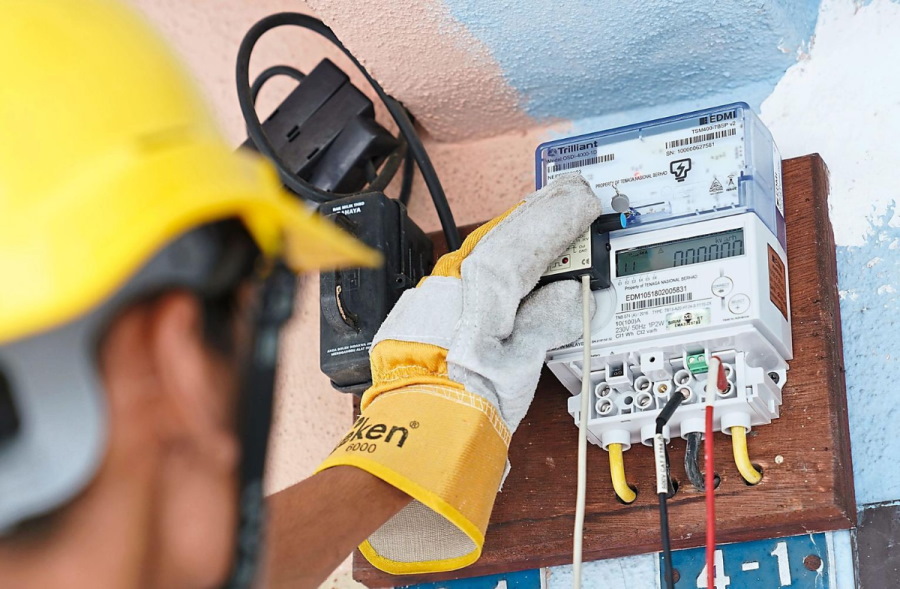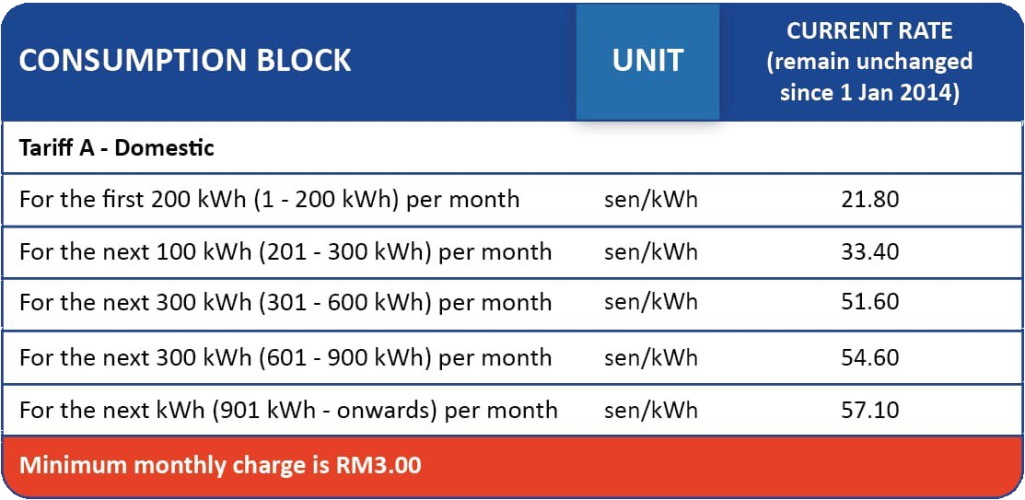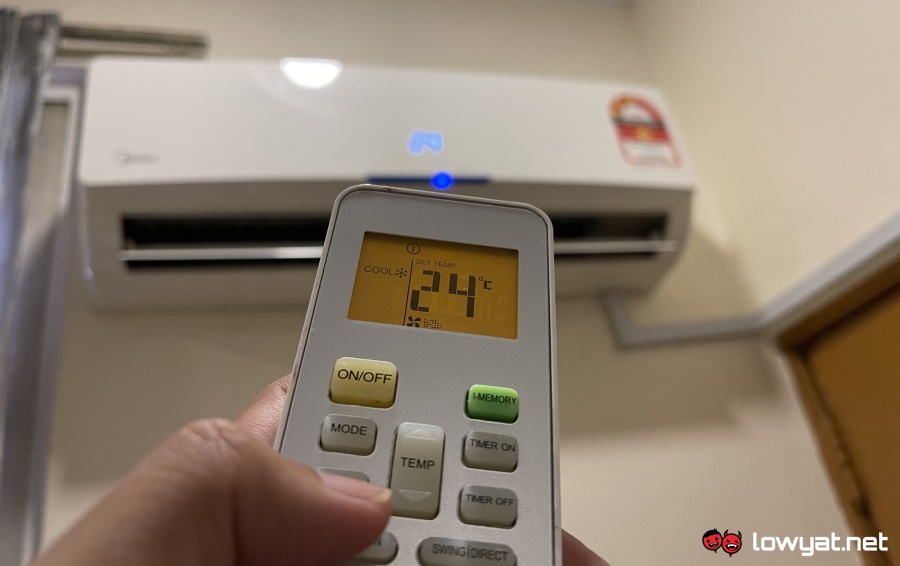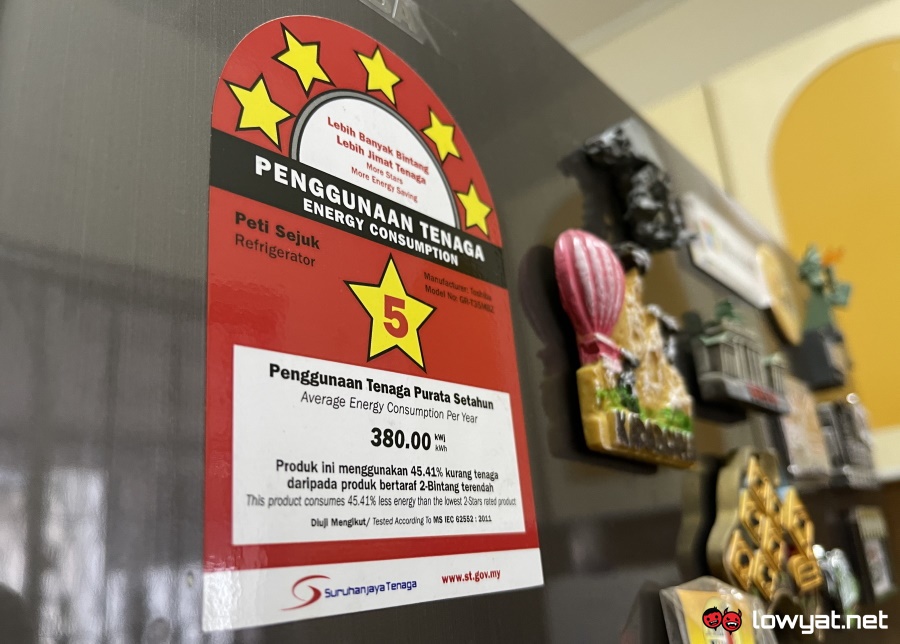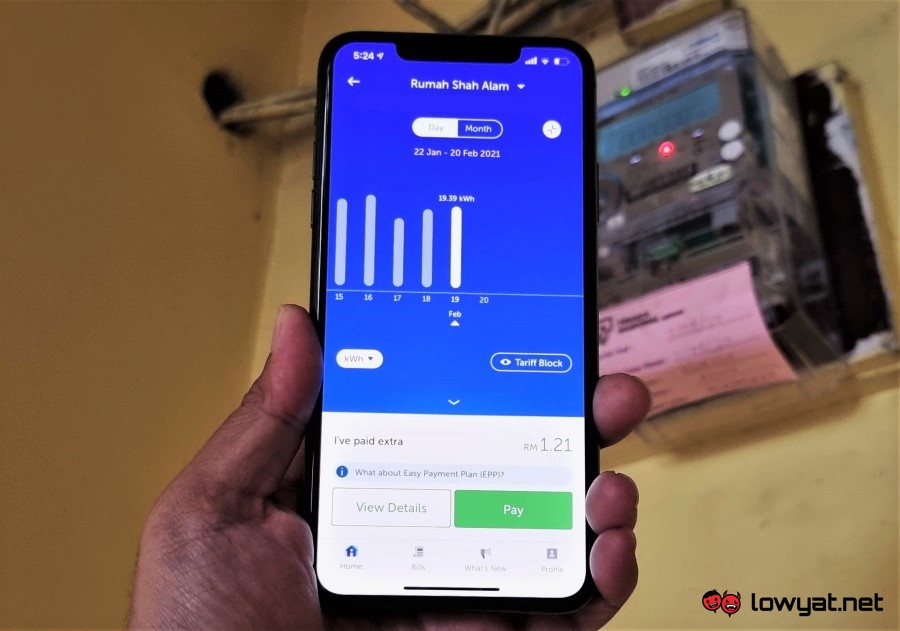This is simply because when we were working at the office during pre-pandemic times, power consumption was kept to a very minimal level in our homes. Now that we are at home all the time, our appliances are being used more often than ever before. Here is another truth: you can actually manage this. So, let’s get into it.
Let’s start by getting to known how your electricity bill works. You may already be aware that Tenaga Nasional Berhad (TNB) uses a block tariff system to keep track of your energy consumption. The block tariff is gazetted by the Government and is implemented in TNB’s electricity bill calculation. The amount of energy you use is measured using kWh (kilowatt-hour). One kilowatt-hour refers to the amount of energy needed to run a 1,000-watt appliance for one hour. For example, you would have to run a 500-watt device for two hours to be charged for 1 kWh of usage. Similarly, you would be charged the same amount if you run a 2,000-watt device for just 30 minutes. Hence, if you use more appliances at home that run on higher wattage, then you will use more energy the longer they are being used. Furthermore, the more energy you consume, the more you have to pay per kWh under the 5-block price rate. This is how the current block tariff charges look like at the moment for residential customers:
Do note that for total monthly consumption above 300kWh/month, 1.6% Kumpulan Wang Tenaga Boleh Baharu (KWTBB) charges will apply. KWTBB is a fund collected by the Government through consumer’s electricity consumption and it will be used to promote the growth of electricity generation from renewable energy resources. Additionally, there is also a 6% service tax for usages above 600kWh per month with a billing period above 28 days. Consider this scenario: before the pandemic, your monthly energy consumption was around 300kWh which is right at the tail-end of the second tier within the tariff. That means your electricity bill is roughly around RM 77, as per our calculations below: 200 kWh x RM 0.218 = RM 43.60 100kWh x RM 0.334 = RM 33.40 Total: RM 77.00 However, your consumption has increased to 400kWh per month since you began working from home. This is how that additional 100kWh would affect your electricity bill: 200 kWh x RM 0.218 = RM 43.60 100kWh x RM 0.334 = RM 33.40 100kWh x RM 0.516 = RM 51.60 KWTBB = 1.6% x RM 128.60 = RM 2.06 Total: RM 130.66 Just imagine, with that additional 100kWh of usages, your electricity bill is now 70% higher than what you would usually pay during pre-pandemic times. With this information, you may now feel that there is indeed an urgent need to reduce your energy consumption and we have some ideas on how you can do that.
Maximise The Efficiency of Your Air Conditioner
The air conditioner has become more affordable over the years, which explains why many consumers have installed it in their homes. Hence, we are not surprised if you have one in your home or maybe more than one after you decided that all the rooms in your home need an air conditioner. Now, we do not have to tell you that you should not run all of them at the same time because that obviously consumed a lot of energy. Similarly, the same goes for if you set the temperature too low and blast the air conditioner’s fan at maximum speed. So, be moderate and set things accordingly although there are several extra tips that you may want to consider when using an air conditioner at your home. Among them is making sure that the doors and windows of your room or house are closed properly so that the air conditioner would be able to cool down the room much faster. Don’t forget to clean the air conditioner’s filter regularly as well to allow it to work more efficiently for you. Last but not least, consider utilizing the timer function on your air conditioner and set it to turn off after a few hours which should be enough time for it to cool down your bedroom.
Let There Be More Natural Light
Depending on your field of work as well as your office environment, it might be quite normal for your office to have its ceiling lights to be turned on during working hours. At home though, you may want to consider having more natural light around during the daytime. As an alternative to the ceiling lights, you can consider using task lighting instead like your table lamp or standing bed light. It still does the job, rather than wasting energy turning on all your ceiling lights.
Aim For Energy Efficient Products First
You may have seen this label around and maybe you didn’t pay attention much to it. Well, now is the perfect time to learn more about this red and white sticker. The Energy Efficiency Label (EEL) was originally introduced in 2006 for selected types of home appliances including television, air-conditioner, refrigerator, washing machine, microwave oven, electric rice cooker, freezer, and fan. It contains plenty of information including the average energy that the product consumes per year and the amount of energy that is saved when compared to the lowest 2-star rated product in the same category. Generally, you may want to aim for 5-star rated products whenever you can as they can help reduce the energy consumption of your home which means you would also save money in the long run. You would be doing mother nature a favour too as energy-efficient products also help reduce carbon footprint.
What we have mentioned above is just the tip of the iceberg though as there are still plenty of things that you can do to help reduce the energy consumption of your home. Find out more energy-saving tips here with TNB today! As we continue to work and study from home for the sake of our own safety during this pandemic, prudent use of energy is something that you may want to give a little bit more thought to. You can start by just being more mindful of how you utilize all the appliances at your home. Not only that, try to be consistent with it as well so that you can sustain the benefits in the long run rather than just temporarily. You can also download the myTNB app or login to use the myTNB portal here to monitor your energy usage. This article is brought to you by Tenaga Nasional Berhad.
